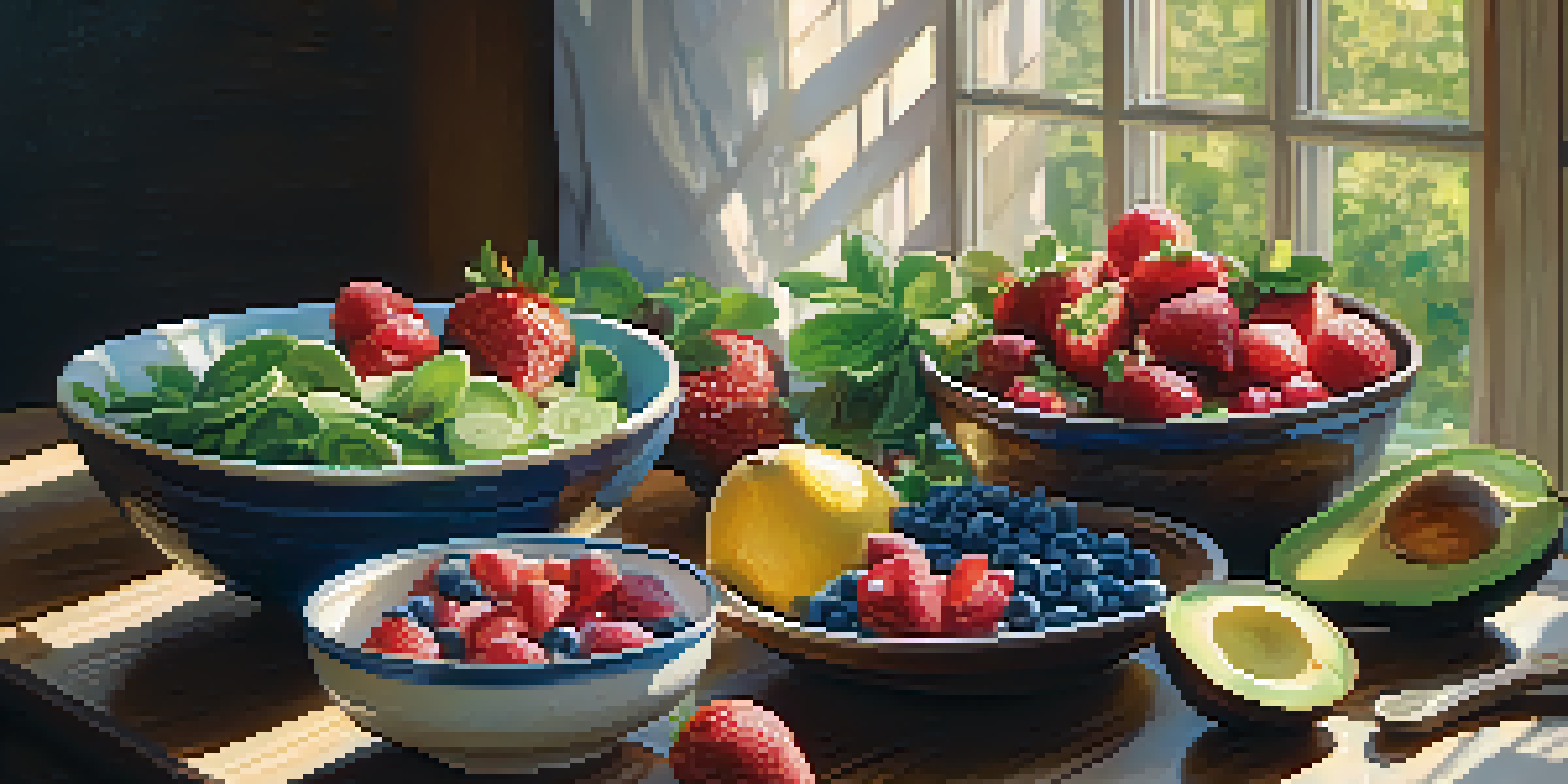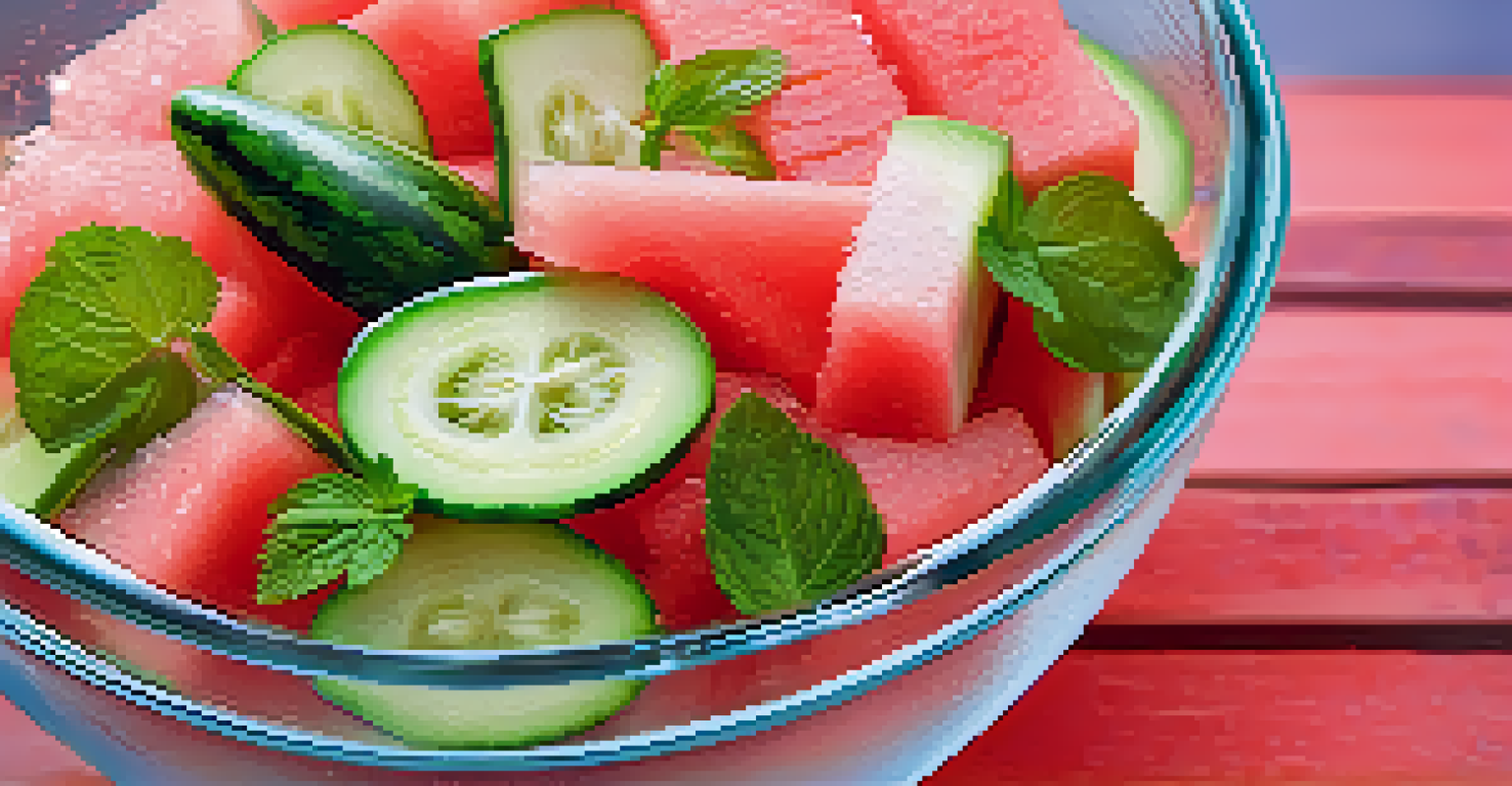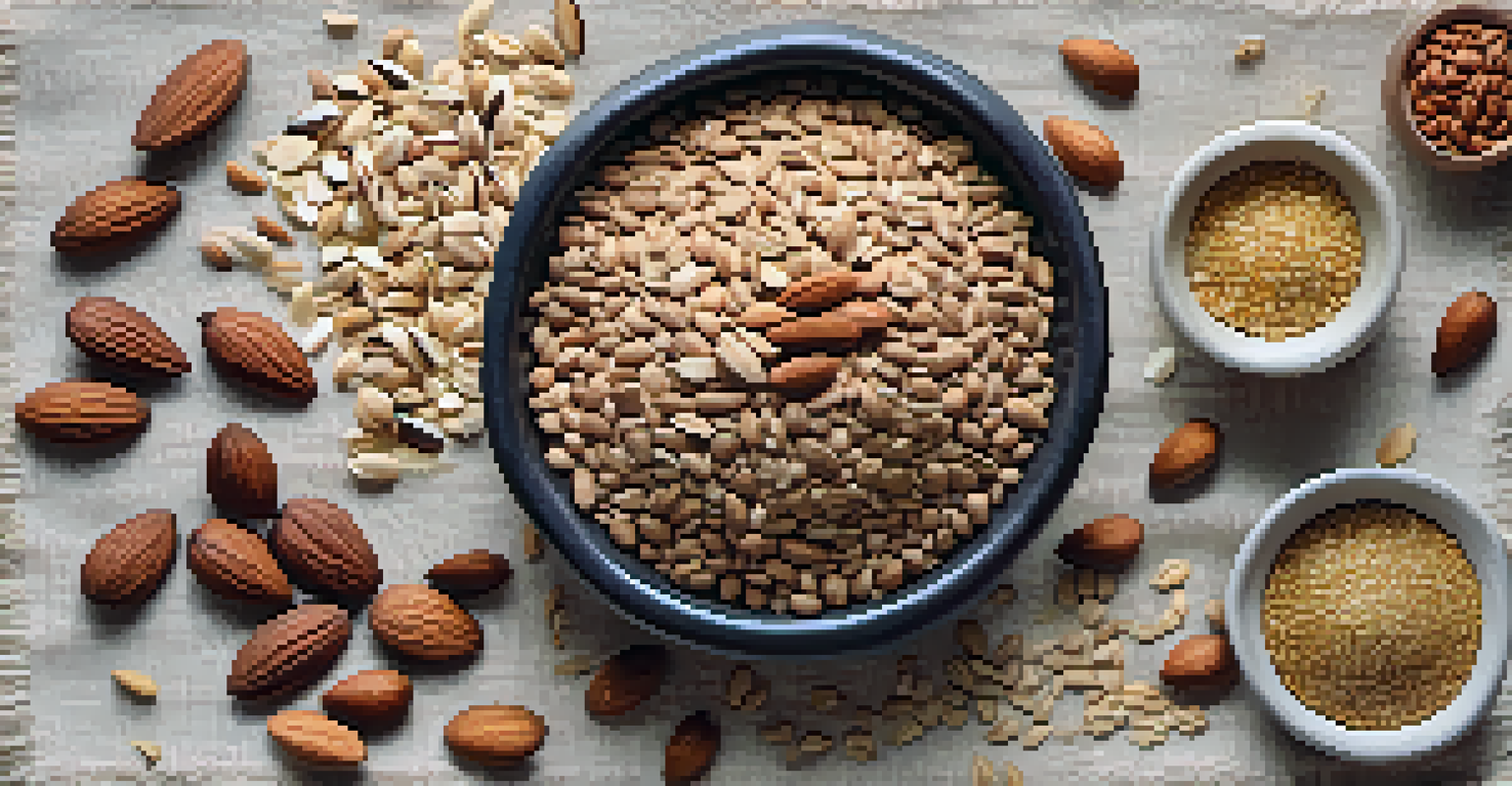Exploring Vegan Diets: Impact on Aging and Skin Health

Understanding Vegan Diets and Their Components
A vegan diet excludes all animal products, focusing instead on fruits, vegetables, grains, nuts, and seeds. This plant-based approach is rich in antioxidants, vitamins, and minerals, which are essential for overall health. By understanding what a vegan diet encompasses, we can appreciate its potential benefits for aging and skin health.
Let food be thy medicine and medicine be thy food.
For example, foods like berries and leafy greens are packed with phytonutrients that combat oxidative stress, a major factor in aging. These nutrients not only support your immune system but also promote healthier skin. Transitioning to a vegan diet can be a positive lifestyle change that sets the stage for better long-term health.
It's essential to ensure that a vegan diet is well-balanced and includes a variety of foods to meet nutritional needs. Supplements may be necessary to fill any gaps, particularly for vitamin B12 and omega-3 fatty acids. By being mindful of these factors, a vegan diet can be both delicious and nutritious, supporting aging gracefully.
The Role of Antioxidants in Skin Health
Antioxidants play a crucial role in protecting our skin from damage caused by free radicals. These unstable molecules can contribute to premature aging, leading to wrinkles and fine lines. A vegan diet is naturally rich in antioxidants, which can help mitigate these effects and promote a youthful appearance.

Fruits like blueberries, strawberries, and pomegranates are particularly high in antioxidants. Including these in your daily meals not only adds vibrant color but also boosts your skin's resilience against environmental stressors. When you nourish your skin from within, the results can be both visible and rewarding.
Vegan Diets Boost Skin Health
A vegan diet rich in fruits, vegetables, and healthy fats provides essential nutrients that support youthful skin and combat aging.
Moreover, antioxidants can enhance skin hydration and elasticity, making your skin look plumper and more radiant. This is why many skincare products tout antioxidant ingredients, but you can achieve similar benefits through a wholesome vegan diet. It's a simple yet powerful way to keep your skin looking its best as you age.
Healthy Fats: Their Importance for Aging Skin
Fats can often get a bad rap, but healthy fats are essential for maintaining skin health, especially as we age. Vegan sources of healthy fats include avocados, nuts, seeds, and oils like olive and flaxseed. These fats help keep our skin moisturized and supple, reducing the appearance of fine lines and wrinkles.
The food you eat can be either the safest and most powerful form of medicine or the slowest form of poison.
Incorporating these foods into your diet can also improve your skin's barrier function, protecting it from environmental damage. For instance, the omega-3 fatty acids found in flaxseeds and chia seeds are known for their anti-inflammatory properties, which can soothe irritated skin. By prioritizing healthy fats, you’re not just benefiting your skin but your overall well-being.
Additionally, healthy fats help your body absorb fat-soluble vitamins like A, D, E, and K, which are vital for skin health. So, the next time you enjoy a salad, don’t skip the dressing—opting for an olive oil-based vinaigrette can boost both flavor and nutrition. This simple choice can be a game-changer for your skin's health.
Vegan Diets and Hydration: A Skin Essential
Hydration is key to maintaining healthy skin, and a vegan diet can naturally support this need. Many fruits and vegetables, such as cucumbers, watermelon, and oranges, have high water content, which can help keep your skin hydrated from the inside out. When you’re well-hydrated, your skin appears more plump and radiant.
Moreover, staying hydrated can flush out toxins that might otherwise contribute to skin issues like acne or dullness. It's a simple yet effective way to enhance your skin's natural glow. Incorporating a variety of hydrating foods alongside your regular water intake can lead to noticeable improvements in your skin's texture and tone.
Hydration Enhances Skin Vitality
Incorporating hydrating foods like cucumbers and watermelon into a vegan diet can significantly improve skin texture and radiance.
Remember, hydration also plays a role in overall health, affecting everything from digestion to energy levels. By making hydration a priority in your vegan diet, you’re not just caring for your skin but setting yourself up for better overall wellness. So, keep that water bottle handy and enjoy those refreshing fruits and veggies!
The Connection Between Vitamins and Skin Vitality
Vitamins are crucial for skin health, with specific ones playing key roles in maintaining its vitality. For instance, vitamin C is known for its collagen-boosting properties, while vitamin E helps protect the skin from oxidative stress. A vegan diet can provide an abundance of these essential vitamins through fruits, vegetables, and whole grains.
Citrus fruits, bell peppers, and strawberries are excellent sources of vitamin C, while nuts and seeds offer plenty of vitamin E. By including a variety of these foods in your diet, you're giving your skin the nutrients it needs to stay youthful and vibrant. A diverse, colorful plate can be an easy way to ensure you’re getting a range of vitamins.
Moreover, B vitamins, often found in whole grains and legumes, are vital for skin cell turnover and repair. This means that a well-planned vegan diet can support your skin's regeneration process, keeping it fresh and healthy. So, the next time you're meal prepping, think colorful and nutrient-dense to give your skin the boost it deserves!
Potential Challenges of a Vegan Diet and Skin Health
While vegan diets offer numerous benefits, there can be challenges that may impact skin health if not addressed. For instance, some individuals may struggle to get enough protein, which is essential for skin repair and regeneration. It’s important to include a variety of protein sources such as beans, lentils, and quinoa to meet your body's needs.
Another potential pitfall is the risk of deficiencies in key nutrients like zinc and iron, which can affect skin health. Incorporating foods like chickpeas, nuts, and fortified cereals can help mitigate these risks. Regularly monitoring your nutrient intake can ensure that your skin remains healthy and glowing.
Mind Nutrient Intake for Skin
Being mindful of nutrient intake, especially protein and vitamins, is crucial for maintaining skin health on a vegan diet.
Lastly, it’s crucial to listen to your body and adjust your diet as needed. If you notice changes in your skin, consider consulting with a healthcare professional or a registered dietitian. By being proactive and informed, you can enjoy the benefits of a vegan diet while keeping your skin in top shape.
Conclusion: Embracing Veganism for Youthful Skin
Embracing a vegan diet can be a rewarding journey that not only benefits your overall health but also enhances your skin's vitality. With its abundance of antioxidants, healthy fats, vitamins, and hydration, a plant-based approach can make a noticeable difference in how your skin ages. By prioritizing whole foods and being mindful of your nutrient intake, you can support your skin's health as you grow older.
Additionally, the act of choosing a vegan lifestyle often encourages individuals to become more aware of their food choices, leading to a deeper connection with what they eat. This mindfulness can contribute to a more positive self-image and overall well-being. Remember that every small change you make can lead to significant results over time.

So, whether you’re considering a full transition to veganism or simply incorporating more plant-based meals into your routine, your skin will likely thank you. With the right approach, a vegan diet can be a powerful ally in the quest for healthy, youthful skin.